What is a Barbarian?
Digging Deeper Into This Piece of Gaming Etymology
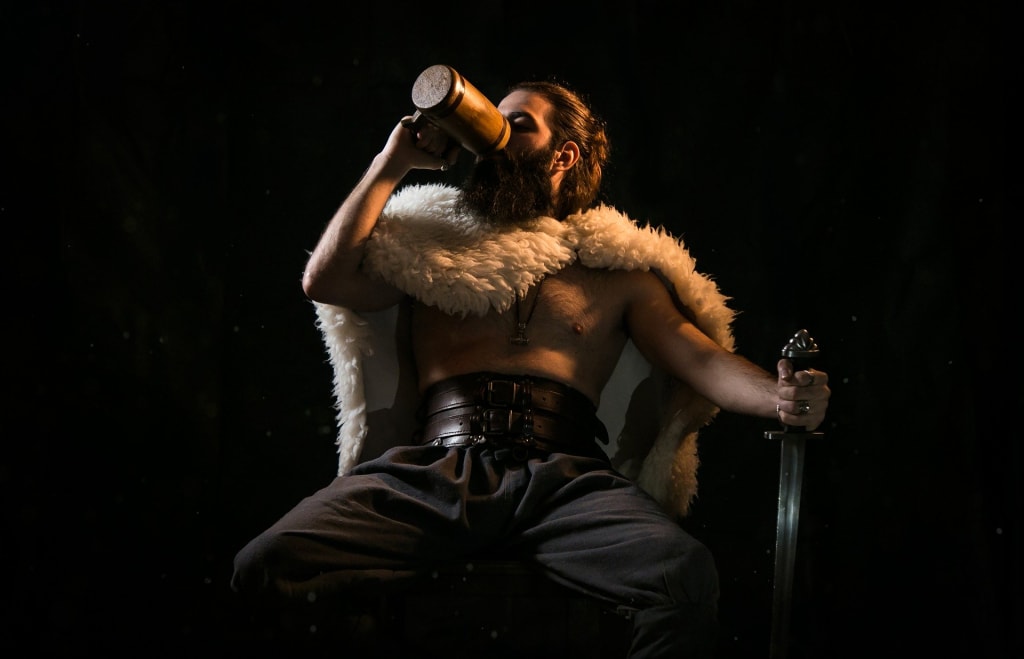
When you hear the word "barbarian" you immediately picture a certain type of character. On the one hand they're strong and tough, dauntless, driven, and iron-willed. On the other they often lack sophistication, are prone to dangerous outbursts of temper, and are often cruel, bestial, or unfeeling.
While the exact history of the word barbarian is relatively simple, over the years it's grown into its own niche in our fiction and our games, and these stories have shaped what we think of when we think of barbarian characters. So if you're in the mood for a deep dive, let's get into this.
If you'd like to check out more articles like this where I examine the etymology of paladins, swashbucklers, warlocks, and more, then make sure you check out the ongoing list of Gaming Etymology on my blog Improved Initiative. And for more gaming and general geekery, don't forget to stop in and check out my full Vocal archive as well!
It's All Greek To Me
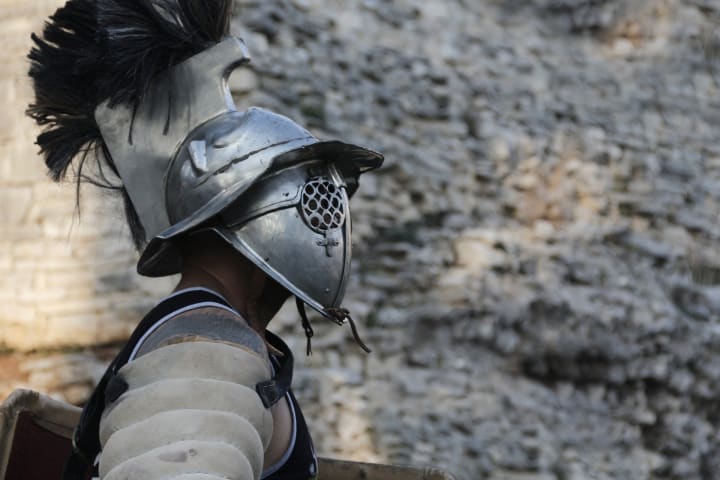
According to the Online Etymology Dictionary, the word "barbarian" tracks back to the mid-14th century as an adjective, and the early 15th century as a noun. Both cases track back to the Latin word "barbarinus," which itself reaches back to the Greek word "barbaros."
In its earliest form, this word simply referred to someone who was not Greek, particularly the Medes and the Persians. Originally just a designation, it became a far uglier, pejorative term after the wars between the Greeks and Persians.
Oxford Reference digs deeper into the negative aspects associated with someone referred to as a barbarian once the term became an insult rather than a neutral label. According to the literature of the time, barbarians lacked higher moral function and restraint that came with the enlightenment that was considered to central to Greek identity (and this was connected to them not being smart enough to properly speak Greek). Barbarians, therefore, had a lack of self control when it came to food, sex, violence, and cruelty. However, barbarians also lacked political freedom and will, and were often characterized as using underhanded weapons like poison, as well as being wasteful and extravagant.
That's a lot of shade to throw with one word.
Once Greece fell, and Rome became the dominant empire in the area, they adopted the policy of referring to non-Romans as barbarians (even though most Romans would have been barbarians themselves, by the original definition). While this was also meant as kind of a blanket statement, the association we always seem to have with it are the Germanic tribes who resisted Rome's occupation and efforts at expansion, as well as the Gauls who fought them so fiercely.
Uncontrolled Rage, Myth, and Pop Culture

Classical stories and mythology were filled with heroes who were given to the very barbaric qualities associated with the term, and we see several characters have their origins tweaked over time to make it clear that they were not Greek. Tereus, for example, was reclassified as a Thracian king in later myths due to the elements of his behavior and tale to make it clear that he was not Greek, and shouldn't be held to those standards.
However, the association of wrath with raw, destructive power (particularly in the hands of less "civilized" characters) is one that we see throughout all sorts of myth cycles. From Thor's storm-like furies, to Cu Chulainn's terrifying transformation when in the grip of the riastrad, it's a fairly common storytelling element. It even carried over into real-life tales of the frenzied berserkers among the Vikings who displayed prodigious strength and endurance while in the grip of battle madness.
As time went on, the idea that the word barbarian marked one's nationality/citizenship (or lack thereof) sort of fell by the wayside. What was left behind was the meaning of a person who was wild, uncultured, rude, and uncivilized. Persons, in other words, given over to passions, wants, and desires rather than careful consideration, morality, or ideals.
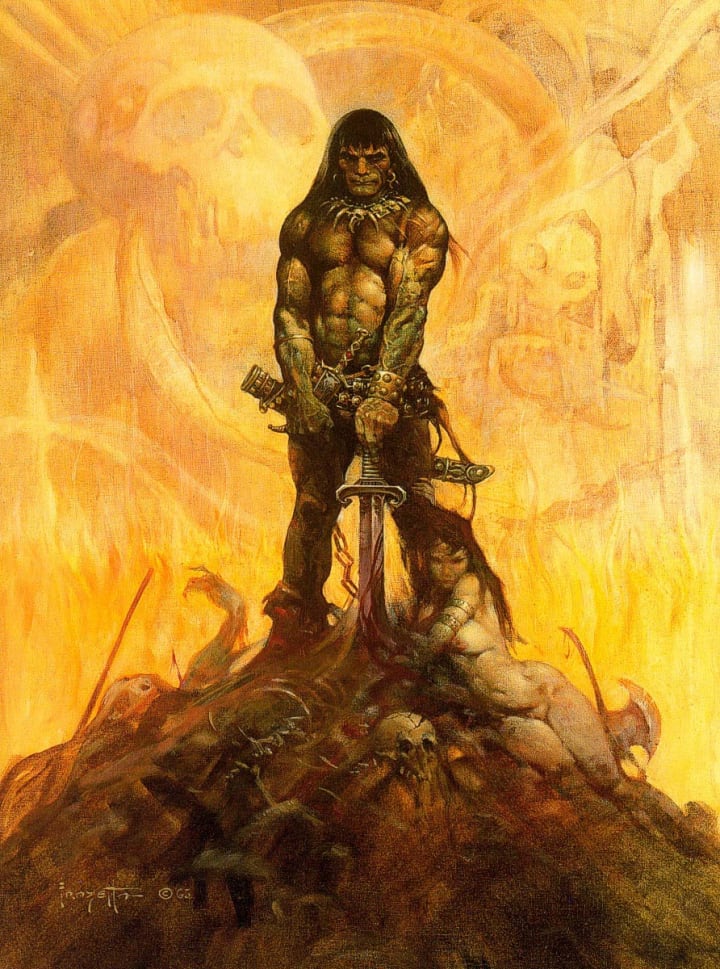
And unto this linguistic hellscape strode Conan.
While Robert E. Howard's infamous pulp protagonist was merely the latest in a long line of individuals that could be termed barbarian heroes, he became the iconic version of that character archetype in the early 20th century. He was larger than life, given over almost entirely to his passions, possessed of colossal strength and indomitable will. He bore no burdens of civilization, he suffered no fools, and he cut a swath through the world of fiction to sit atop a bloody throne.
Though Conan's presence was big enough to influence future generations of fantasy (and particularly tabletop roleplaying games when they emerged in the 1970s and 1980s), it was the smash hit film Conan the Barbarian that seared this version of the barbarian hero into our collective minds (and games); a character of operatic proportions, whose strength of body was matched only by his strength of will, and who took the world by the throat and forced it to give him what he desired.
For those who've watched the sequel, Conan the Destroyer, you've probably noticed that the tone has shifted considerably from the first film. It's an ensemble piece that feels much more like a Dungeons and Dragons movie (thief, fighter, wizard, monk, barbarian, NPC they're escorting), and while we can argue about film quality and comparison, it linked the barbarian even more firmly to the setup of a tabletop game early on in the growing popularity of fantasy RPGs.
Once that connection was made, the archetype of the barbarian was here to stay. And while there have been countless Conan clones (including versions of the character that call back to historical inspirations like the Germanic hero Arminius, who stopped Rome cold at the Rhine River), the archetype has grown and stretched over the years. In many cases it's even dipped back into the earlier, mythological roots with characters who transform into monsters when they unleash their rage, or who are driven by brute excesses of alcohol and chemical stimulants. In others it's branched out into more modern archetypes, like horror movie slashers or comic book characters, bridging the gap between classic archetypes and modern media.
While this is far from a total exploration of the barbarian hero as a literary archetype, hopefully it shines a little light into what the word means, how it's evolved, and some of the inspirations that have made them what they are in our games today.
About the Creator
Neal Litherland
Neal Litherland is an author, freelance blogger, and RPG designer. A regular on the Chicago convention circuit, he works in a variety of genres.
Blog: Improved Initiative and The Literary Mercenary

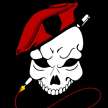
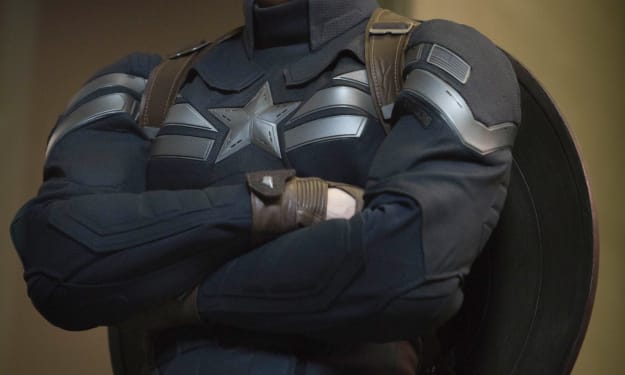



Comments
There are no comments for this story
Be the first to respond and start the conversation.